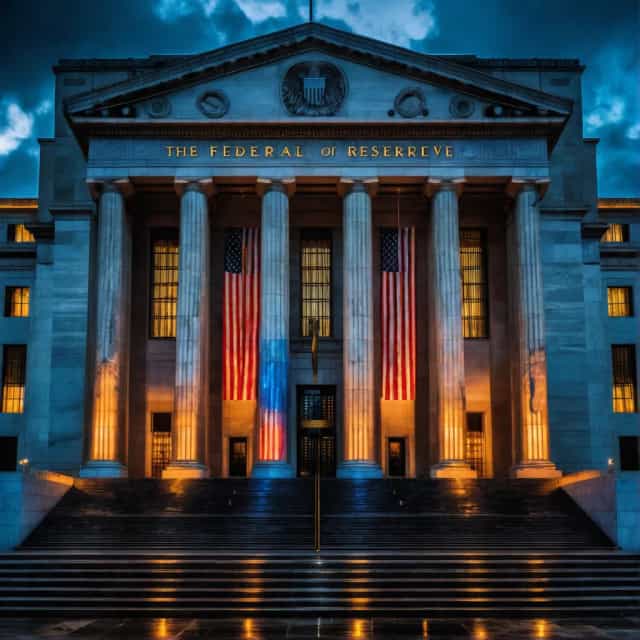
Image source: Block Media
SBI Shinsei Bank to Pioneer Multi-Currency Tokenized Payment System with Partior and DeCurret DCP
SBI Shinsei Bank, a major player in Japan’s banking sector, has unveiled a groundbreaking partnership with Singapore-based blockchain platform Partior and Japan’s DeCurret DCP. Together, they aim to create a blockchain-powered cross-border payment solution leveraging multi-currency tokenized deposits. This collaboration signals a significant step toward transforming traditional banking systems into a faster, globalized, and decentralized financial network.
Blockchain Technology: The Foundation of Real-Time Payments
On October 17, reports revealed that the three entities had signed a memorandum of understanding (MoU) to lay the groundwork for developing a real-time payment clearing system powered by blockchain technology. The convergence of their expertise centers on harnessing distributed ledger technology (DLT) to achieve seamless global transaction processing.
DeCurret DCP, which operates the DCJPY platform, currently allows Japanese banks to issue tokenized yen deposits. With this partnership, SBI Shinsei Bank seeks to expand beyond yen-centric activities, aiming to utilize blockchain technology to issue tokenized deposits in major currencies, including the U.S. dollar, Singapore dollar, and euro.
Partior, a multi-currency clearing network backed by prominent financial institutions such as JPMorgan, DBS, Deutsche Bank, and Standard Chartered, brings its robust infrastructure to the collaboration. While it already supports the U.S. dollar, euro, and Singapore dollar, this initiative will see the integration of the Japanese yen into its multi-currency ecosystem.
Building a 24/7 Global Payment Network
The ultimate goal of this partnership is to establish an always-on, borderless payment infrastructure accommodating tokenized deposits issued in various currencies. SBI Shinsei Bank will assume responsibility for issuing these deposits, DeCurret DCP will link the existing DCJPY platform to Partior’s global network, and Partior will further develop its platform to support payments involving Japanese yen alongside other currencies.
This integrated blockchain-powered network is expected to challenge the shortcomings of the traditional correspondent banking model, which often relies on intermediary accounts to complete cross-border transactions. By leveraging DLT, this advanced system could drastically reduce settlement times, cut operational costs, and enhance transparency in global payment flows.
The three organizations have confirmed that detailed roles, responsibilities, and formal agreements are underway, with announcements of their finalized business alliance expected in the near future.
Global Push for Tokenized Payment Systems
The rise of tokenized payment systems is gaining momentum globally, as central banks and leading financial institutions explore innovative solutions to address inefficiencies in traditional banking frameworks. The Bank for International Settlements (BIS), for instance, has been at the forefront of research in tokenized payments with its “Project Atlas.”
Launched in collaboration with central banks from Japan, France, South Korea, Switzerland, Mexico, the UK, and the U.S. Federal Reserve, Project Atlas focuses on integrating tokenized commercial bank deposits with wholesale central bank digital currencies (CBDCs). The initiative’s unified ledger concept seeks to improve payment efficiency, reduce costs, streamline operations, and enable the use of smart contracts—all while maintaining the dual banking model.
Similarly, Singapore’s Monetary Authority (MAS) has been driving innovations through “Project Guardian.” This initiative leverages tokenization in borrowing, securities trading, and foreign exchange transactions to boost transparency, operational speed, and efficiency.
Future Implications for Financial Systems
As financial institutions and regulatory bodies worldwide intensify their efforts to develop tokenized solutions, the traditional correspondent banking model faces disruption. Tokenized payments represent a paradigm shift toward greater inclusivity, reduced settlement times, and improved operational efficiency.
SBI Shinsei Bank's collaboration with Partior and DeCurret DCP exemplifies the broader movement reshaping cross-border payments. Should this multi-currency blockchain network succeed, it could pave the way for a globally interconnected financial ecosystem, benefiting businesses and individuals alike with faster and more accessible payment solutions.
This landmark partnership and the surrounding global initiatives highlight the rapid evolution of the financial landscape. As these systems mature, tokenization could serve as the cornerstone for a modernized, efficient, and tech-driven global economy.










